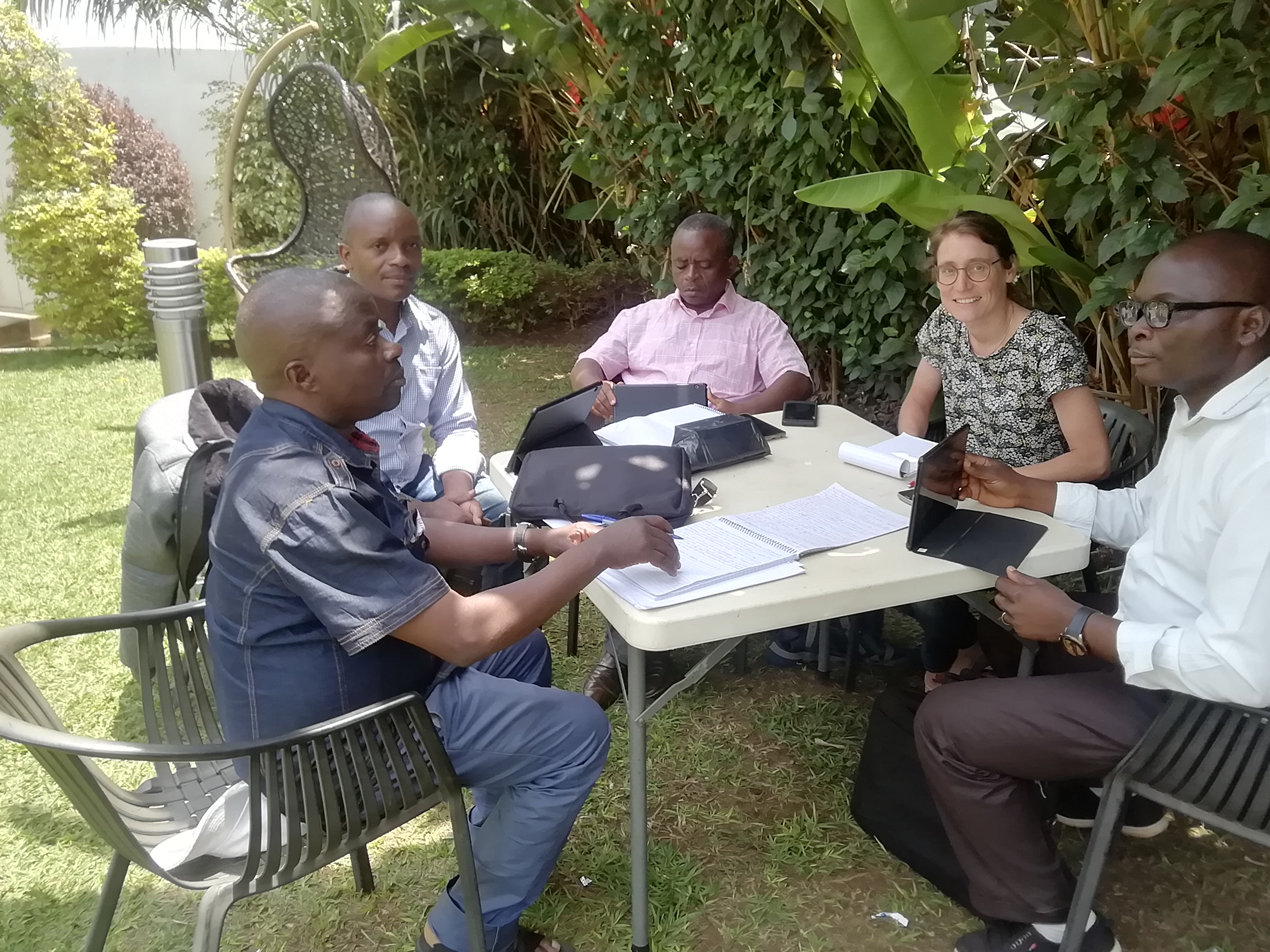TRAFIG Kick-Off Workshop in Bukavu
TRAFIG’s Congo team started the empirical research of Workpackage 4 with a workshop in Bukavu, the capital of South Kivu province, located in the east of the Democratic Republic of Congo beginning of September 2019. The Congo team of The Social Science Centre for African Development KUTAFITI the Swahili word for ‘to research’)consists of Joachim Ruhamya, Patrick Milabyo, Carolien Jacobs, Stanislas Lubala and Innocent Assumani (here at the picture from left to right). Our team has experience in academic research, NGO work, and consultancy with backgrounds in peace and development studies, local governance, political sciences, and regional planning.
In contrast to the other countries under study of TRAFIG, the focus in DRC is not on refugees, but on internally displaced persons (IDPs) that seek refuge within their own country. In South Kivu province, there are no IDP camps, which means that people seek shelter within host communities. Upon arrival in these communities, they are often hosted for the first days or weeks by relatives or friends. From there, they try to find their own house for rent and gradually become more integrated in their new environment. Because IDPs are citizens within their own country, there are no formal registration requirements. IDPs are hence relatively invisible, which makes it sometimes challenging to trace respondents. Possibly this also explains the limited attention that IDPs in host communities receive from academics, policy makers and humanitarian practitioners alike.
The DRC team has been working together since 2014 on two other projects that focused on IDPs, and therefore has meanwhile obtained a good overview of the neighbourhoods and streets where IDPs live. For these previous projects we looked mostly at ways in which IDPs obtain access to justice and the challenges they face when they are disconnected from their known and trusted authorities. We further examined how they got settled into the urban setting, how they seek access to the labour market, and to what extent they felt secure and integrated in the city. The target group is hence not entirely new to the team and relevant contacts are already existing.
During the training workshop, we connected some of the insights that we obtained previously to the main research questions of TRAFIG and discussed ways in which we could build on the data and knowledge that we already obtained. Some aspects had come out already in previous projects – even if it had not been our main focus-, other aspects will need more attention in the new round of data collection that we have now started.

During our workshop we also paid extensive time to a number of more practical and formal requirements of the project, such as making use of tablets and the Kobo Toolbox for data entry and the use of consent forms.
By Carolien Jacobs, VVI, Leiden University